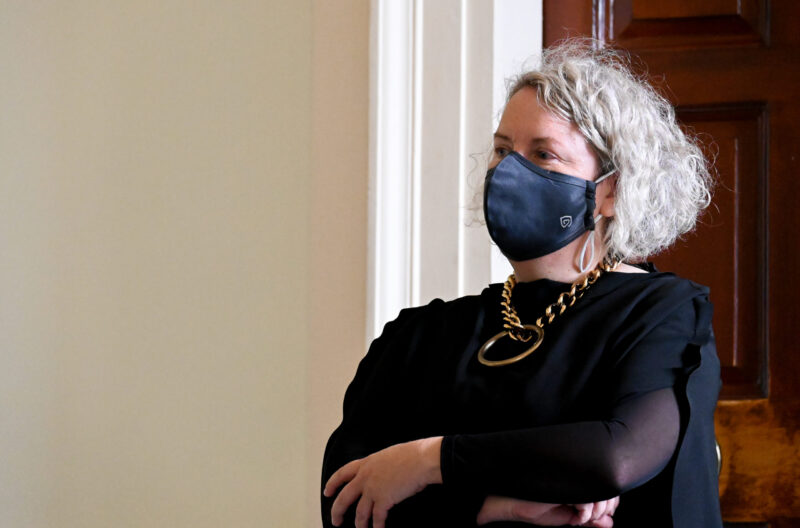Provost Linda Doyle today spoke on a number of issues facing Trinity’s community in an address to the college providing updates on activities over the past year.
One of the most pressing issues discussed was the question of precarious employment and academic promotion. Explaining the promotion system within College, Doyle said: “In Trinity, typically we have academic promotions, and we’ve had what we call role grading for academic staff”.
“We have a lot of conversations about precarious work and the people in various situations. Some of them we can do something about, others we may not be able to. There is a better way and I believe we’ll find it.”
“I expect there will be things where we see that we need to stop the practice and there is opportunity for these jobs to be permanent”, she explained.
“I expect I will also see that there’s nothing you can do about other situations.”
When asked about what the college intends to do to alleviate precarity by Dr. Enrica Ferrara, a lecturer in the School of Italian, Doyle responded: “I think people need to have more integrity in the first place when hiring people in terms of laying out what’s possible, where the job can go and where it can’t”.
Dr. Niall Kennedy, a teaching fellow in the School of French, asked whether the college intends to have core modules and how they intend to find people to teach them if they are paid less than €10k a year.
Doyle replied that College intends to see “who’s working on what and what kind of employment conditions they have”, and to “see if [they] can group things together into a full-time position or if [they] need to stop things altogether”.
Matt Murtagh White, a member of the PhDs’ Collective Action Union (PCAU), questioned the Provost on whether College can still claim to provide fully-funded PhDs considering the current stipends. He also asked Doyle if she supports minimum standards for PhD researchers in training.
“I don’t think you can say it’s a fully funded stipend anymore,” Doyle responded. “I think PhDs who are working should be treated with contracts for that work separate to a stipend.”
She also acknowledged the various levels of funding that PhDs receive, and that none of them are adequate in light of the cost of living crisis.
Doyle added that “[Simon Harris] is driving for all HEIs to collectively do a much better analysis of the conditions that people are in”.
The Provost also addressed the HEA Bill: “The HEA Bill that many people in this room have been working with and against was passed through the Dáil and the Seanad yesterday”.
She acknowledged that “we’ve done an awful lot of work, as have many people in this room, because we’ve been worried about the general parts of the bill” before stating “we’re at the end of the journey in terms of the bill being passed but we’re at the start of the journey in terms of what it means for us”.
Speaking further on the bill and the changes in board it will bring, Doyle said: “this is a huge opportunity for us to update our governance”. She discussed the need to update committees that were constructed decades ago, as well as “the opportunity to have a biodiversity community and embed the EDI that really matters to us”.
“We will be engaging with that this year as we change the board in line with legislation.”
Doyle spoke further on matters of accommodation, reiterating that “we would like to do something more about accommodation”. This involves 250 beds in Printing House Square, which will be the first new square in Trinity for 100 years. She also touched on the expansion of Trinity Hall, which has planning permission but is yet to gain funding.
Other changes to buildings on campus included the renovation of the Rubrics, which is “due to be finished in the first quarter of next year”. This will also have a geothermal heating system.
The Provost also mentioned “facing our legacy issues head on.” Doyle explained that “we are an old university and, by virtue of being a very old university, we have a past. Some of that past is brilliant and some of it is not great”.
She added: “We want to ensure that we can have a really serious, proper, evidence-based debate and not a debate on twitter”.
Doyle ended by commenting on the collaborative role students and staff will play in Trinity’s future: “This is only the start of a conversation. There are many questions that need to be asked, but I also know we have great staff and students who will hold my feet to the fire and each others’ feet to the fire”.







